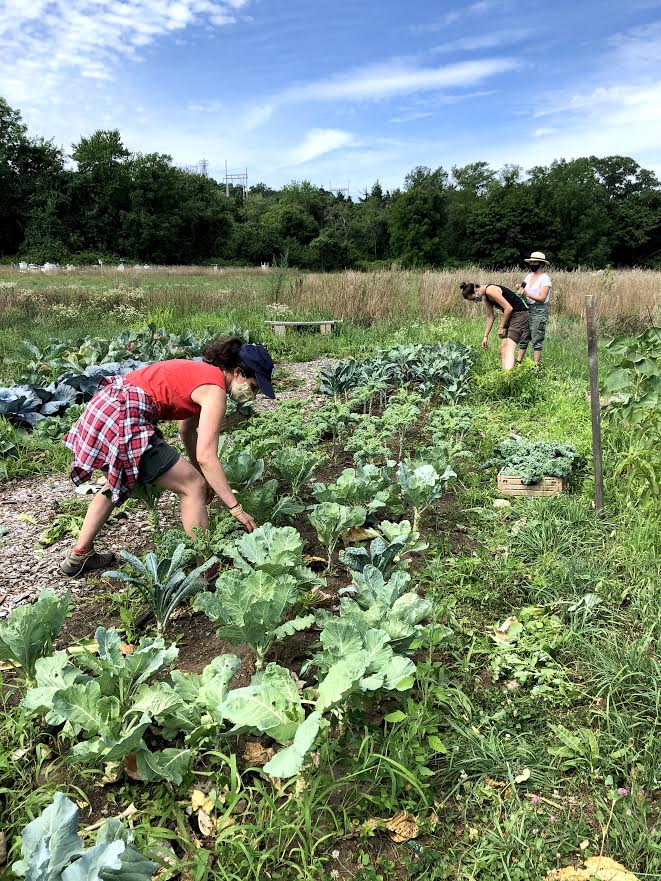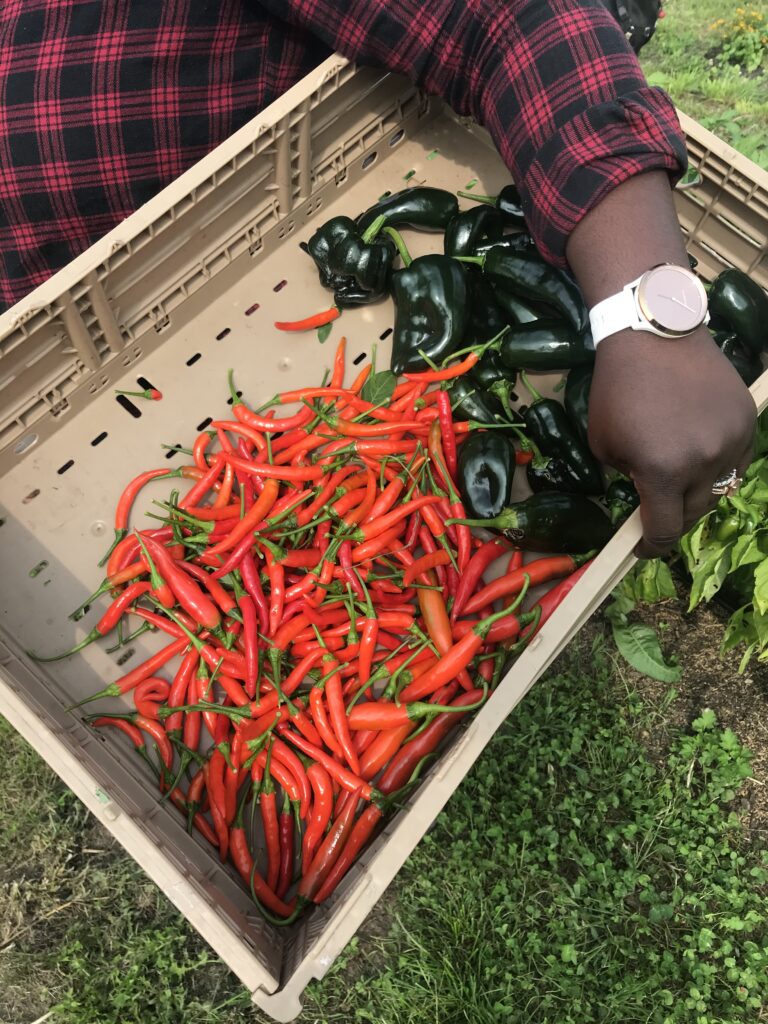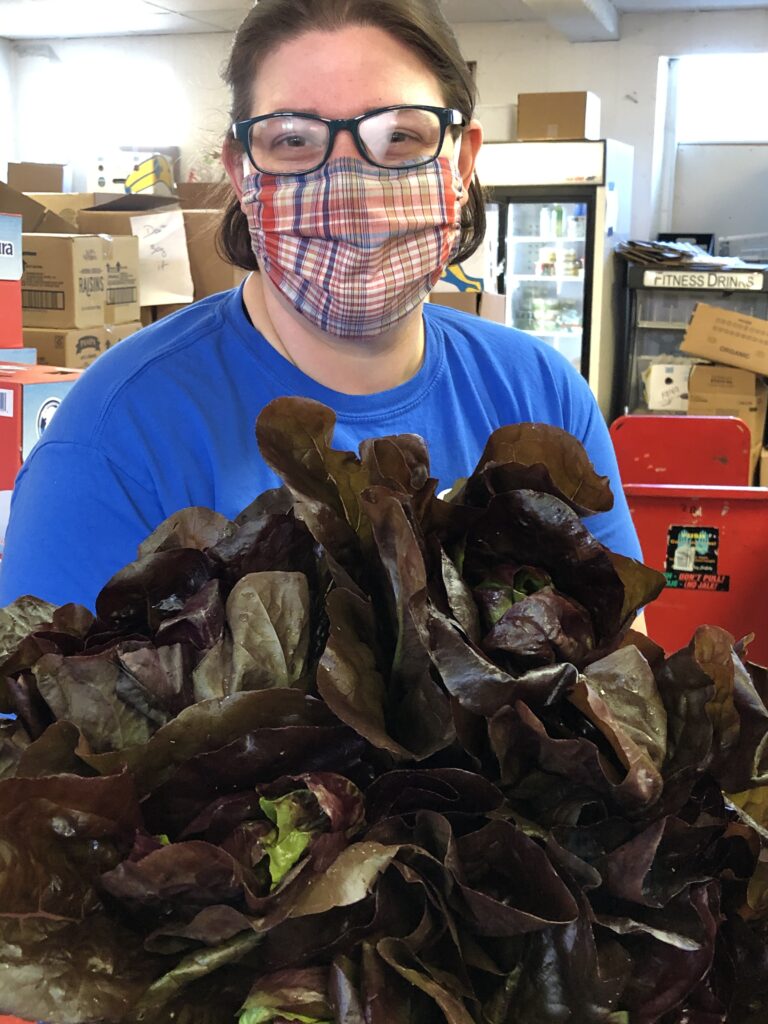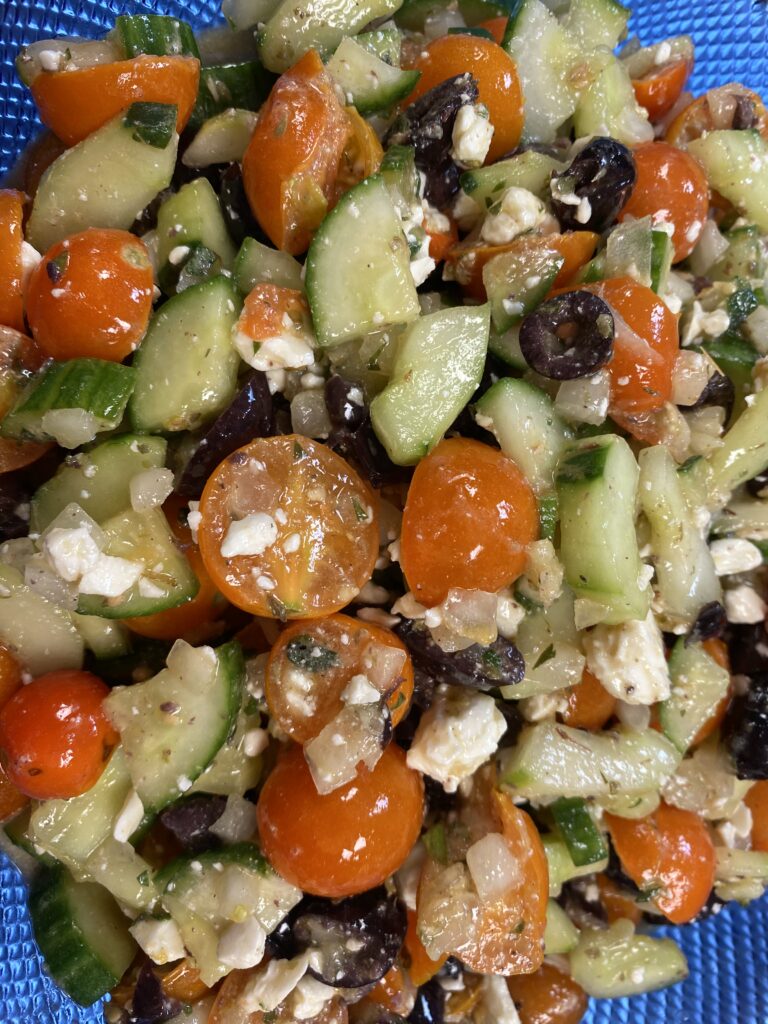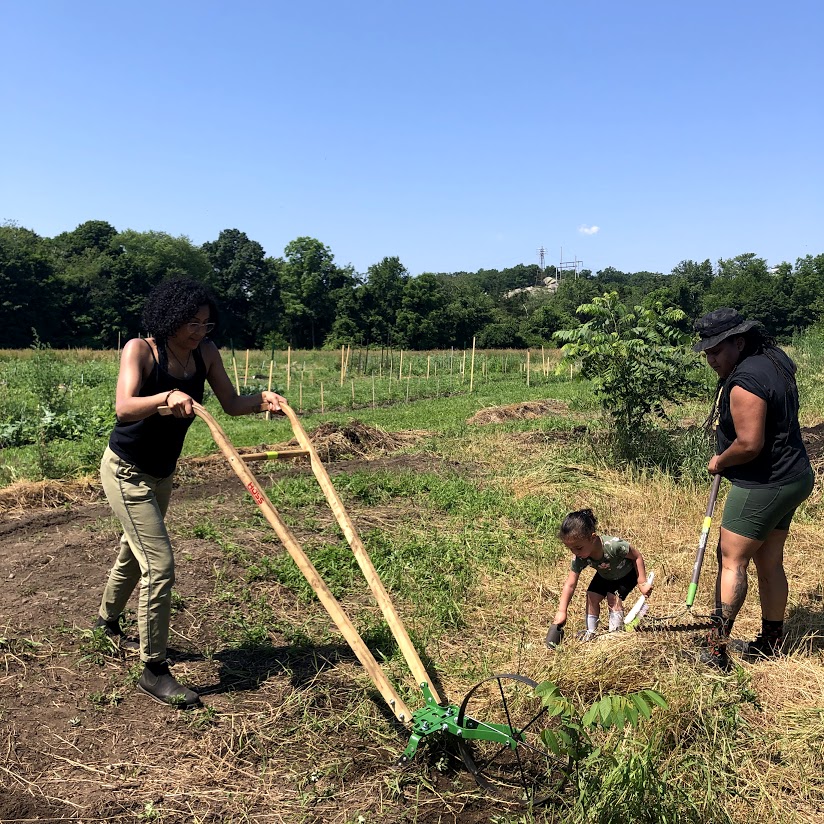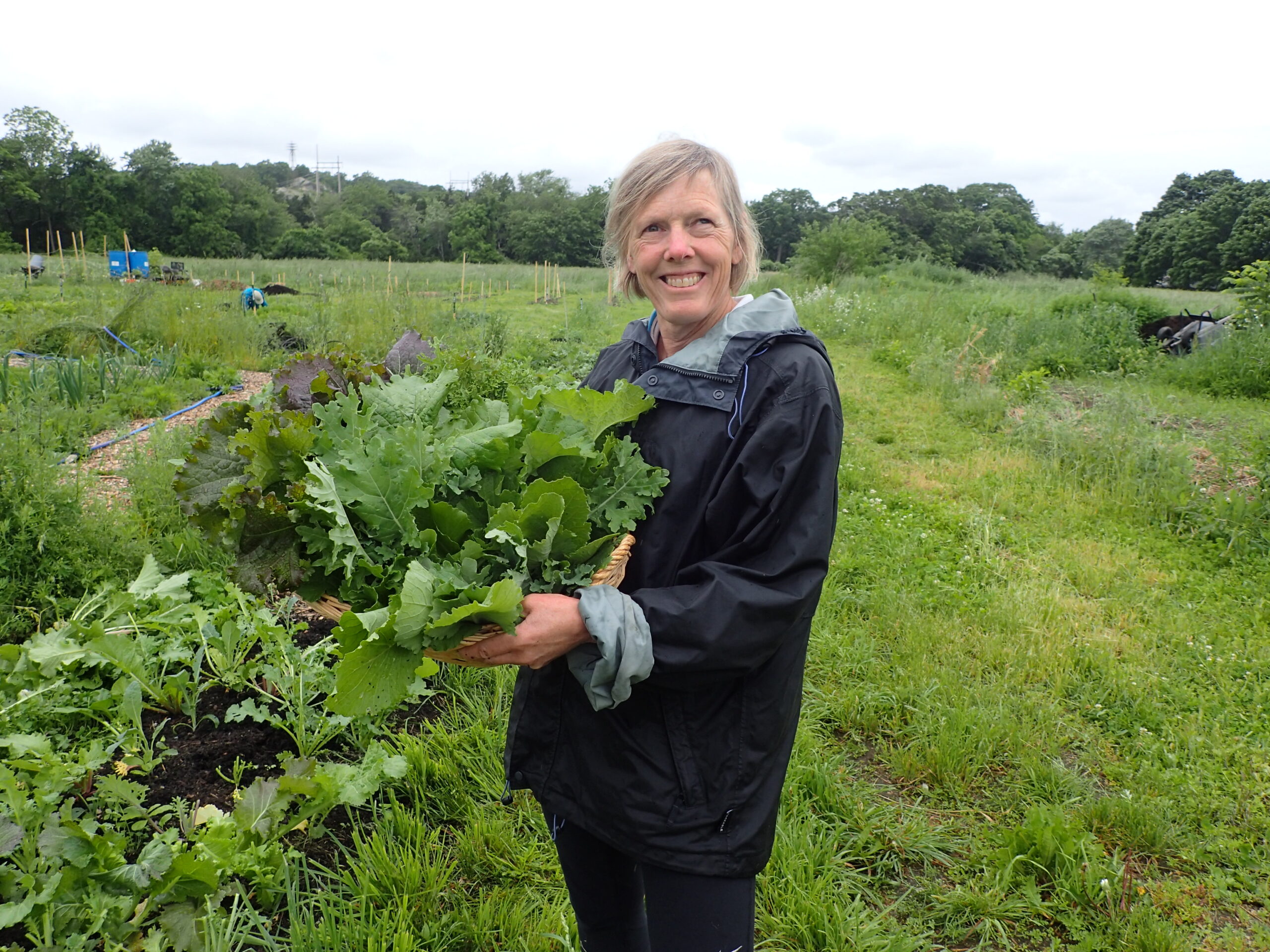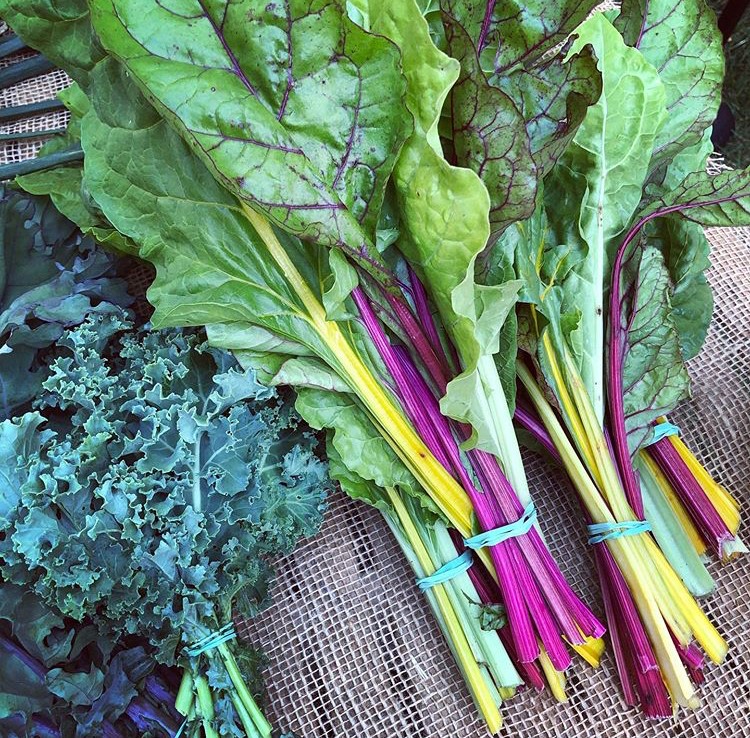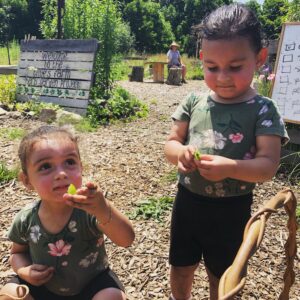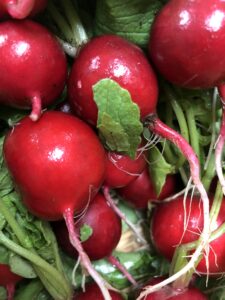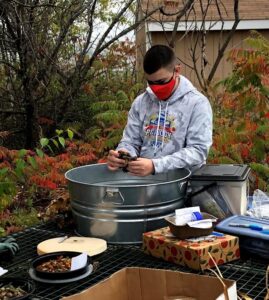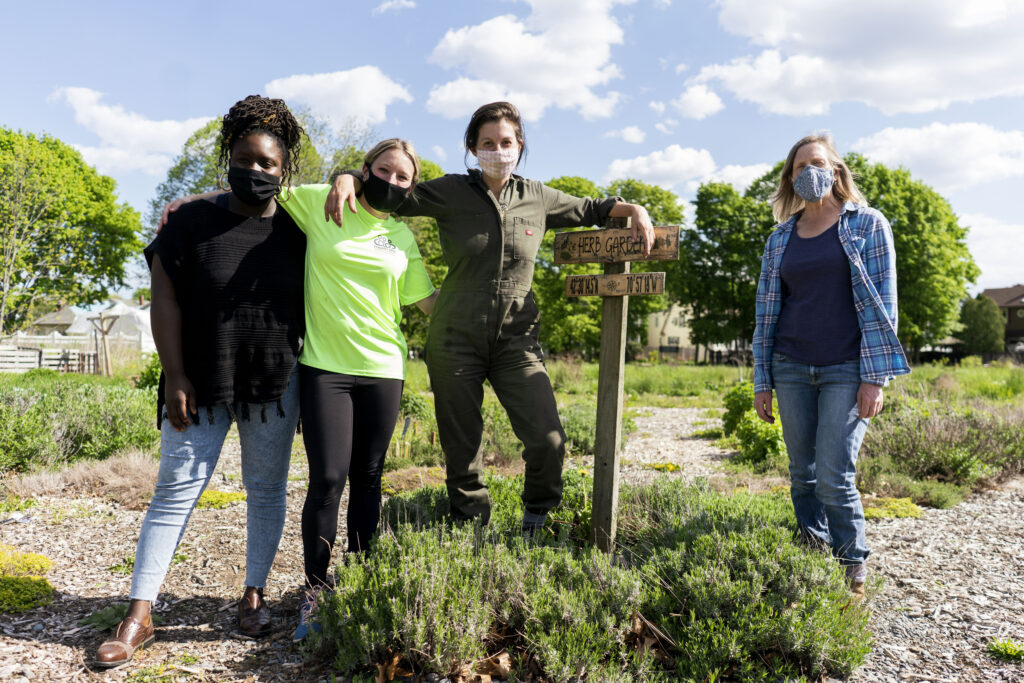
BY TRÉA LAVERY| ITEM LIVE | May 14, 2021
PEABODY — Tucked behind the homes and businesses on busy Lynn Street lie two acres of ground that feed people throughout the community.
These two acres are tended by the volunteers that run Newhall Fields Community Farm (NFCF), a nonprofit that focuses on environmental education and addressing food insecurity.
“We’re really grateful to have the opportunity to grow highly-nutritious food using organic agricultural practices for and with our community,” said Jeannette McGinn, NFCF’s director and board president. “And at the same time, we can have people come enjoy this great space, because it’s for everybody.”
The farm is part of a 17-acre property originally owned and operated by the Newhall family for more than 100 years; in 2007, it was sold to the city. Now, the property is home to both Tillie’s Farm Stand and NFCF, which leases its portion of the land, as well as conservation land.
NCFC began in 2017 when the city took full management of the land, looking for community uses. McGinn and other community members got involved, attending meetings in cafes and the library to discuss how best to use the land. Along with NFCF’s herbalist and board member Rebecca Ingalls, they came up with the idea for an herb garden to support community education, and the city granted them a small plot on the property to start it.
In 2019, NFCF was founded as a nonprofit, and that year, they expanded their plot to plant vegetables. The first year, they were able to harvest over 2,000 pounds of food with the help of over 300 volunteers. Around 80 percent of the food harvested at the farm is donated to the Haven from Hunger food pantry at Peabody’s Citizens Inn.
NFCF farmer Hazel Kiefer explained that the farm uses all organic practices to grow its crops, which means that they use no pesticides or chemicals.
“Organic is a very principled way of farming that involves working with nature and not trying to trick or outsmart her,” Kiefer said.
That means that they use special tarps to keep out bugs, bring in compost for fertilizer, and even use spent grain donated by the brewers at nearby Granite Coast Brewing as mulch to keep moisture in the soil. They also use cover crops like winter rye to keep nutrients in the soil and prevent erosion during the cold months, and are working toward a no-till model where seeds are sown directly on top of the remains of the cover crops.
All of that work is done by the farm’s volunteers. Some of those workers come from community programs like YouthBuild at North Shore Community Development Coalition, and others are just interested neighbors. While the volunteer workforce dropped significantly during the COVID-19 pandemic, McGinn said, they also began a program for high-school students who volunteer at the farm on Saturdays.
“The first group that signed up re-signed up in the spring. They created their own cohort,” McGinn said. “They had this common interest in the farm and a desire to learn.”
More of the farm’s staff, even those who weren’t normally as hands-on, got involved, too. Emily Cooper, NFCF’s community outreach and special events coordinator, said that she learned a lot from getting closer to the soil out of necessity, and social media manager Daybar Bugler said that working on the farm helped her realize how beneficial it was for her and others’ mental health.
“With everything going on in 2020, it became clear how important it was,” Bugler said. “This is a wellness zone. Getting my hands in the dirt with people was so helpful.”
The farm is starting to see greens come up, including garlic, onions, lettuce, peas, cabbage and plenty of herbs. Their outreach programs are blooming, too: The farm was just certified to accept SNAP, they are expanding into the wholesale market for their products and this year, for the first time, they will be selling produce at Tillie’s Farm Stand.
“We want this food to be going to people who need it, and who wouldn’t otherwise be eating fresh, nutrient-rich food,” Kiefer said.
To get involved with NFCF, visit newhallfieldscommunityfarm.org.
*This article was written by Tréa Lavery of Item Live. View the original article here: https://www.itemlive.com/2021/05/14/newhall-fields-brings-fresh-food-to-the-community-of-peabody/?fbclid=IwAR0xSxpp4BwS600FYAqmYrbms2zVx7x6u6zPYORlawaHtN_FLLaHiId4FtE

